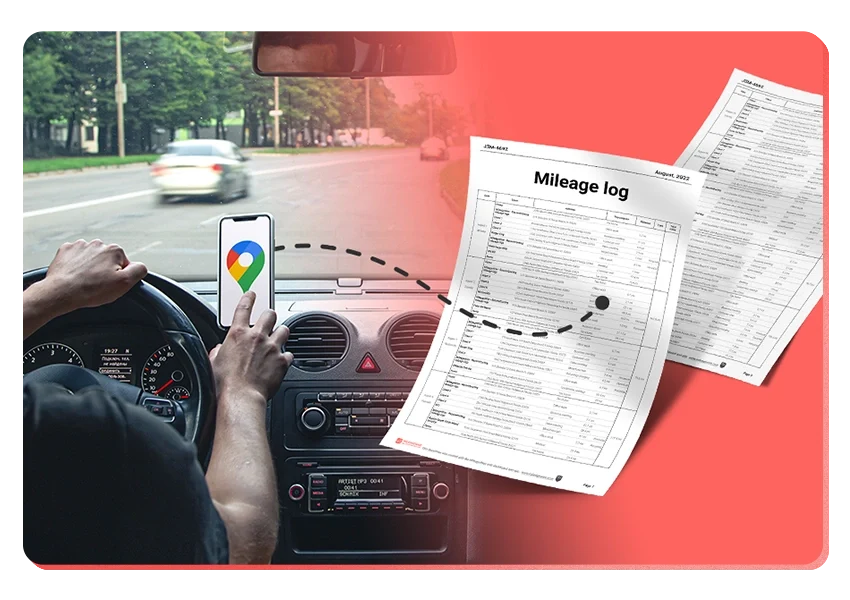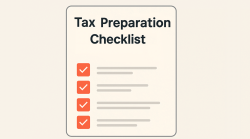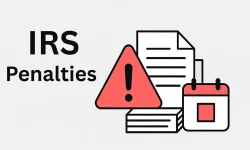Table of Contents
IRS Audit: What You Need to Know
An IRS audit is simply when the IRS looks closely at your tax return to make sure everything is correct. It’s a review or check of your financial information. They want to see if you followed the tax rules and reported the right amount of income and deductions.
Understanding Different Types of IRS Audits
There are a few ways the IRS might audit you. These types depend on how complicated your tax situation is and what they need to check. Knowing the difference can help you prepare.
Correspondence Audit: Audited by Mail
Most IRS audits, about 70%, happen by mail. This is called a correspondence audit. It’s usually about small things, like a simple math error or a mismatch between what you reported and what someone else reported (like a W-2 or 1099). The IRS sends you a letter asking for more information or explaining a correction they made. You just mail them the documents they need.
Office (Desk) Audit: Meeting at the IRS
An office audit means you need to go to an IRS office. These deal with more complex issues than a mail audit. They might want to review certain deductions or ask questions about specific parts of your tax return. You’ll bring your records and meet with an IRS agent. These visits usually last for a few hours.
Field Audit: At Your Place
The most detailed type is a field audit. In this case, an IRS agent comes to your home or business to review your records. This usually happens for businesses or people with very complicated tax returns. Field audits are more in-depth and can take a full day or even longer.
How to Prepare for or Respond to an IRS Audit
If you receive an IRS audit letter, don’t panic! Take a deep breath and follow these steps:
- Read the letter carefully: Understand exactly what the IRS is asking for and for which tax year.
- Gather all requested documents: Be thorough and organized. Make copies of everything you send to the IRS.
- Respond on time: The letter will give you a deadline. Don’t miss it. If you need more time, ask for it.
- Consider professional help: For anything beyond a very simple mail audit, talking to a tax professional is highly recommended. They understand the process and can represent you.
- Stay calm and be honest: Provide clear, truthful answers and documentation.
- Know your rights: Remember you have the right to professional treatment, privacy, and the ability to appeal decisions. The IRS also has a Taxpayer Bill of Rights.
Being prepared with good records year-round is the best way to handle an IRS audit if one comes your way. Keep your receipts, bank statements, and other important tax documents organized for at least three years after you file to avoid IRS penalties.
FAQ
What triggers an IRS audit for mileage deductions?
Common IRS audit triggers include inconsistencies in mileage logs, unusually high mileage claims, and inadequate documentation supporting mileage deductions.
How can I prepare for an IRS audit regarding mileage?
Maintain thorough, detailed, and timely records of all mileage claimed, ensuring each trip is clearly documented with dates, purposes, and destinations.
Does MileageWise provide IRS audit protection?
MileageWise helps users create detailed and compliant daily mileage logs, significantly reducing the risk of audit issues and providing clear documentation if audited. It also provides tools in case the mileage log was not accepted by the IRS.
Try MileageWise for free for 14 days. No credit card required!

Company Car vs Car Allowance: Which is Better for Your Business?
Last Updated: January 19, 2025 Deciding between a company car vs car allowance for your employees involves weighing costs, flexibility, and tax implications. For U.S.

Vehicle Fleet Software to Boost Your Business
Last Updated: January 19, 2026 Vehicle fleet software helps businesses handle their vehicles much better, cutting down costs and making everything run smoother. This type

Is Mileage Reimbursement Taxable? The Need to Knows
January 16, 2026 Mileage reimbursement is not taxable if your company follows IRS rules. Specifically, if you reimburse employees at or below the IRS standard

Freshly Announced: See The IRS Mileage Rates for 2026
January 2, 2025 The IRS has officially announced the IRS mileage rates for 2026, and they bring important updates for self-employed individuals, gig workers, small

Introducing the Mileage Log from Google Maps App
We’re excited to share our latest development! You can now convert your Google Maps Timeline drives directly into an IRS-compliant mileage log right on your

DoorDash Tips and Tricks: Your Edge Over Competition
Last Updated: November 17, 2025 I’m excited to share the top DoorDash tips and tricks shared by YouTuber Pedro “Mr.BetonYou” Santiago. He collected and vetted the



It’s Finally Here! Google Maps Timeline Import from Mobiles
Transform your Trip Lists into Mileage Logs with MileageWise

Company Car vs Car Allowance: Which is Better for Your Business?
Last Updated: January 19, 2025 Deciding between a company car vs car allowance for your employees involves weighing costs, flexibility, and tax implications. For U.S.

Vehicle Fleet Software to Boost Your Business
Last Updated: January 19, 2026 Vehicle fleet software helps businesses handle their vehicles much better, cutting down costs and making everything run smoother. This type

Is Mileage Reimbursement Taxable? The Need to Knows
January 16, 2026 Mileage reimbursement is not taxable if your company follows IRS rules. Specifically, if you reimburse employees at or below the IRS standard

Freshly Announced: See The IRS Mileage Rates for 2026
January 2, 2025 The IRS has officially announced the IRS mileage rates for 2026, and they bring important updates for self-employed individuals, gig workers, small

Introducing the Mileage Log from Google Maps App
We’re excited to share our latest development! You can now convert your Google Maps Timeline drives directly into an IRS-compliant mileage log right on your

DoorDash Tips and Tricks: Your Edge Over Competition
Last Updated: November 17, 2025 I’m excited to share the top DoorDash tips and tricks shared by YouTuber Pedro “Mr.BetonYou” Santiago. He collected and vetted the

Introducing the Mileage Log from Google Maps App
We’re excited to share our latest development! You can now convert your Google Maps Timeline drives directly into an IRS-compliant mileage log right on your

Was Your Google Timeline Deleted? Here’s What Happened:
Last updated: November 20, 2025 If you recently opened Google Maps and noticed your Timeline was deleted or partially missing, you’re not alone. In this

It’s Finally Here! Google Maps Timeline Import from Mobiles
Struggling to Manage Your Trips After Google’s Timeline Update? If you’re reading this, you’ve likely encountered the recent update affecting Google Maps Timeline. With Timeline
Transform your Trip Lists into Mileage Logs with MileageWise
Last Updated: October 1, 2025 Do you have a list of monthly trips from a data source like Excel or Google Timeline, but need to

How to Download Google Timeline Data: A Guide
Google Timeline Import Hub Last Updated: October 30, 2025 Want to download Google Timeline data? This guide shows you how to extract your location history

How to Export Google Maps Timeline: Get Your Data
Google Timeline Import Hub Last Updated: October 29, 2025 It can be tricky to export Google Maps Timeline data after Google’s recent updates. Many users
Google Maps Mileage Tracker: From Timeline to Mileage Log
Google Timeline Import Hub Last Updated: October 29, 2025 If you’re an active user of Google Maps Timeline you likely already know how convenient it
Timeero
Table of Contents Timeero Timeero is a time, location, and mileage tracking app designed for businesses and teams in the United States. It helps employers
Milewise by Allstate
Table of Contents Milewise by Allstate Milewise by Allstate is a pay-per-mile car insurance program offered by Allstate Insurance in the United States. It’s designed
Hurldr
Table of Contents Hurdlr Hurdlr is a finance and expense tracking app designed for self-employed professionals, freelancers, and gig workers in the United States. It












